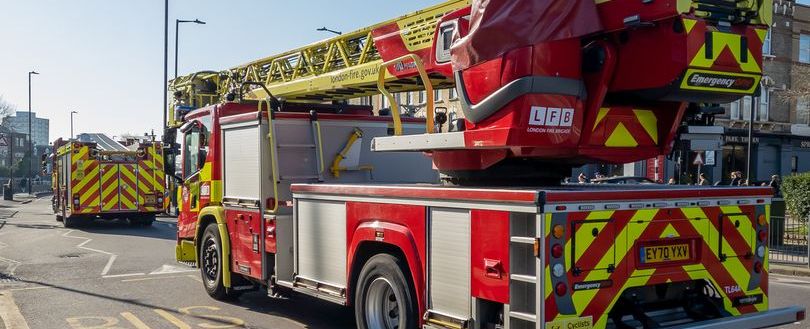
London businesses urged to reassess fire safety protocols ahead of key LFB changes
Like it? Share it!
01 July 2024
Businesses across London are being strongly encouraged to revisit their fire safety measures following a significant policy shift by the London Fire Brigade (LFB). From October, the LFB will no longer respond to automatic fire alarms in non-residential buildings during the day, specifically between 7:00 am and 8:30 pm, in an effort to reduce unnecessary strain on fire service resources.
Over the past year leading up to March 2024, the LFB attended approximately 52,000 false alarms triggered by automatic fire systems. As reported by Fire Safety Matters, this new approach is intended to alleviate the operational load on the Fire and Rescue Service.
Dougie Barnett, the Director of Customer Risk Management at AXA Commercial – a branch of AXA Insurance UK plc – stressed the importance of this update for London’s business community. “The London Fire Brigade’s decision is in line with the stance taken by many other Fire and Rescue Services across the UK,” explained Dougie Barnett, director of customer risk management at AXA Commercial. “It’s crucial that London businesses are aware of the change. If there’s a fire, employees need to know to dial 999 during the working day because there will not be an automatic response as there has been in days gone by.”
Barnett highlighted that this change will have significant implications for any business that relies on remote connections to an Alarm Receiving Centre. Consequently, fire risk assessments will need to be revised, and additional staff training is necessary to ensure appropriate response measures are in place in the event of a fire.
Preparing for the shift
To adequately prepare for this shift, businesses should focus on a few key areas:
Updating fire risk assessments and staff training: It is crucial that fire risk assessments are updated, particularly to inform employees of the actions required if an alarm goes off during working hours. For businesses operating on a shift basis, specific guidance should be provided for different times of the day, considering both response and non-response periods.
Emphasising the importance of calling 999: Employees must be trained to understand the critical importance of calling 999 in the event of a fire and reporting the incident to the Fire and Rescue Service. Assigning specific individuals with the responsibility for these actions is highly recommended.
Implementing early identification systems: Establishing procedures for early identification of the cause of an alarm – whether it is a false alarm or an actual fire – is imperative. This includes educating staff on how to interpret messages displayed on the fire alarm panel to pinpoint which detector has been triggered.
Regular maintenance of fire alarm systems: Ensuring that fire alarm systems are regularly maintained by competent contractors is essential to minimise the occurrence of false alarms.
Strategic planning for the future
Barnett concluded by noting the significant impact this change will have on London businesses and underscored the importance of proactive planning. “This is a substantial adjustment for businesses in the capital, and it’s vital that they act now to update their fire risk assessments and ensure that all staff are appropriately trained and informed before the LFB’s policy change takes effect.”
The LFB will continue to respond to automatic fire alarms during the night, between 8:30 pm and 7:00 am. Further details and guidelines can be accessed on the LFB’s official website.
Read the full article.
Our eNews provides regular insight into industry trends, news headlines, and product and service information. For more articles like this Subscribe to our enews.
Related training
Related news
-
Record Rise in E-Bike and E-Scooter Fires Across London
28 January 2026
Related resources
-
Fire Risk Assessors Standard Scope of Services
07 August 2025
-
Passenger Service Vehicle - Guidance Note
05 September 2023
